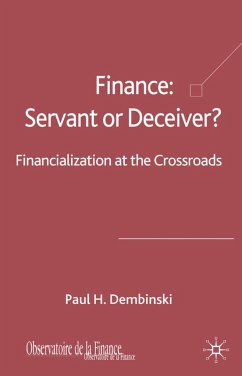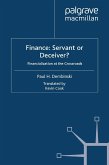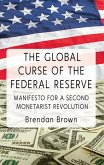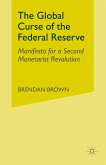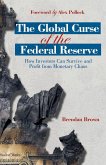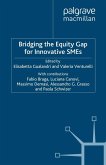During the last 30 years, finance has increased not only its share of economic activity but also of peoples aspirations. This has transformed society by increasingly organizing it around the search for financial efficiency. Is a society based on fundamental values of free judgment, responsibility and solidarity still possible? This book answers this crucial question.
'Writing in September 2008, watching the financial markets drag the world into recession, the importance of this book is clear. It sets out convincingly the deceit of a financialised economy, driven by forces which betray. The authors understand the issues, and have spent years in preparation for this excellent book which permits a critical understanding of the forces which are so badly affecting us. It is not a simple polemic, nor wholesale condemnation but an ethically driven critique of the false path down which the western economies have traveled.'
- Rev Justin Welby, Dean of Liverpool Cathedral, UK, Personal and Ethical Adviser to the Association of Corporate Treasurers, and Member of the Committee of Reference F&C plc.
'Paul Dembinski is an economist who believes (as I do) that economics should be entertaining good special relations with the neighbouring disciplines of philosophy, psychology, sociology and anthropology. In this extraordinary essay, drawing on a decade of work of the Observatoire de la Finance, he provides a lucid, cutting-edge treatment of the present-day process of financialization of the global economy. The anatomy of the present-day financial-market model, carried along the lines of systemic approach, is followed by a disquieting analysis of its many pathologies, which jeopardize both the economic and the socio-political spheres.
With Paul Dembinski, finance once again becomes a humane activity where interpersonal relations and not mere transactions occupy the center of the stage. The Author provides illuminating and workable suggestions on what should be done in order to re-orient the present trend. Dembinski's well-written, jargon-free book will capture the attention of anyone seriously interested in the future of our civilization.'
- Stefano Zamagni, Professor of Economics, University of Bologna, Italy. Adjunct Professor of Political Economy, Johns Hopkins University, Bologna Center, Italy. Author (with L. Bruni) of Civil Economy (2007).
'Finance: Servant or Deceiver? by Paul H. Dembinski is a unique and powerful book. Rarely does a book contain a broad picture of humanity with such detailed and meticulous research. And rarely does an interdisciplinary theoretical book covering philosophy, economics, and psychology shock and alarm.
The author provides a structure to both the history of finance and its impact on global society. He leads the fascinated reader through the emergence of a new species of relationships and transactions, where actors play like marionettes in a world of financial market theater. The market's invisible hand is indeed invisible; but it is not the market's hand, but the hand of a few powerful leaders of aggregate wealth. Not their own wealth, mind you; but the wealth of others.
Professor Dembinski describes current human relationships, molded by the financial and market model: impersonal, short-term, calculating and mistrusting. Professor Dembinski invites the reader to abandon this model. The hearts of our economies, our relationships, our productivity, our values, do not belong to the financial model. Let us put this model in the place it deserves. Let those who preach it as the dominant model, and more importantly, those who follow it, read this book, and reconsider."
- Tamar Frankel, Professor of Law Boston University Law School, USA
Michaels Faculty Research Scholar, USA
Author of Trust and Honesty: America's Business Culture at a Crossroad(2006).
- Rev Justin Welby, Dean of Liverpool Cathedral, UK, Personal and Ethical Adviser to the Association of Corporate Treasurers, and Member of the Committee of Reference F&C plc.
'Paul Dembinski is an economist who believes (as I do) that economics should be entertaining good special relations with the neighbouring disciplines of philosophy, psychology, sociology and anthropology. In this extraordinary essay, drawing on a decade of work of the Observatoire de la Finance, he provides a lucid, cutting-edge treatment of the present-day process of financialization of the global economy. The anatomy of the present-day financial-market model, carried along the lines of systemic approach, is followed by a disquieting analysis of its many pathologies, which jeopardize both the economic and the socio-political spheres.
With Paul Dembinski, finance once again becomes a humane activity where interpersonal relations and not mere transactions occupy the center of the stage. The Author provides illuminating and workable suggestions on what should be done in order to re-orient the present trend. Dembinski's well-written, jargon-free book will capture the attention of anyone seriously interested in the future of our civilization.'
- Stefano Zamagni, Professor of Economics, University of Bologna, Italy. Adjunct Professor of Political Economy, Johns Hopkins University, Bologna Center, Italy. Author (with L. Bruni) of Civil Economy (2007).
'Finance: Servant or Deceiver? by Paul H. Dembinski is a unique and powerful book. Rarely does a book contain a broad picture of humanity with such detailed and meticulous research. And rarely does an interdisciplinary theoretical book covering philosophy, economics, and psychology shock and alarm.
The author provides a structure to both the history of finance and its impact on global society. He leads the fascinated reader through the emergence of a new species of relationships and transactions, where actors play like marionettes in a world of financial market theater. The market's invisible hand is indeed invisible; but it is not the market's hand, but the hand of a few powerful leaders of aggregate wealth. Not their own wealth, mind you; but the wealth of others.
Professor Dembinski describes current human relationships, molded by the financial and market model: impersonal, short-term, calculating and mistrusting. Professor Dembinski invites the reader to abandon this model. The hearts of our economies, our relationships, our productivity, our values, do not belong to the financial model. Let us put this model in the place it deserves. Let those who preach it as the dominant model, and more importantly, those who follow it, read this book, and reconsider."
- Tamar Frankel, Professor of Law Boston University Law School, USA
Michaels Faculty Research Scholar, USA
Author of Trust and Honesty: America's Business Culture at a Crossroad(2006).

